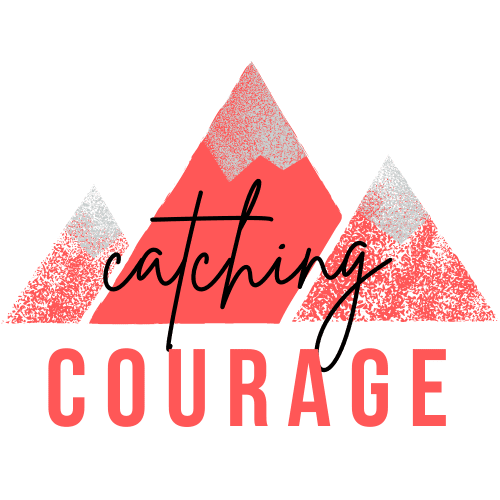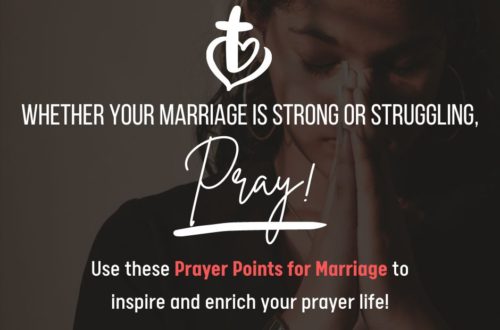How to Read the Bible – All You Need to Know
I’ve considered myself to be a Christian pretty much my whole life. I grew up going to church, singing in the church choir, going to youth group, and all that. However, I never really spent much time reading the Bible. And when I did read it, I didn’t understand it or get a lot out of it, which didn’t help me want to read it more.
But when I decided a few years ago to truly get to know and follow God, I realized that a huge part of that was going to be finally figuring out how to read the Bible and interpret it correctly. In fact, as Christians we need to understand reading the Bible isn’t optional; it’s an integral part of the Christian faith.
Contents
Why Read the Bible
Before we answer the question, “How do we read the Bible?” it’s important to talk a little about why we should read the Bible. Here’s a quick list…
- It’s the only way to truly get to know God and your Savior, Jesus Christ. The more I really read and study the Bible and get to know God, the more I love Him. And the more I love Him, the more I want to know Him more through His word and to follow His ways.
- It gives you a better understanding of how the Holy Spirit helps you become more like Jesus so you can cooperate with Him.
- Reading the Bible keeps us humble by reminding us of our sin (conviction).
- It reminds us that sin leads to death and calls us to repentance (being sorry for our sin and asking God for forgiveness).
- Reading the Bible reminds us that we need God.
- Getting to know God motivates us to remain in obedience to Him.
- Studying the Bible shows us how to obey God and gives us wisdom for life.
- “Your word is a lamp for my feet, a light on my path.” Psalm 119:105
- Knowing the Bible gives us discernment, or the ability to tell truth from lies.
“How can a young person stay on the path of purity? By living according to your word. I seek you with all my heart; do not let me stray from your commands. I have hidden your word in my heart that I might not sin against you.”
Psalm 119:9-11
In knowing God and His ways through His word, we gain wisdom, discernment, and direction for life, perspective for how to process what is happening in the world, a framework for righteousness, we better understand how to love and serve others, we recognize our sin and neediness for God, we are comforted by God’s faithfulness, we are able to distinguish between true teaching and false teaching, we are sanctified; as we conform to Gods’ will, we become more like Christ.
I could go on, but I think you get the idea that reading the Bible is an integral part of every Christian’s walk with God.
“All Scripture is God-breathed and is useful for teaching, rebuking, correcting, and training in righteousness, so that the servant of God may be thoroughly equipped for every good work.”
2 Tim 3:16-17
A final note…You can’t separate a personal relationship with God and reading His word.
If someone tells you that God will show you what to do using feelings or experiences or implies that this is the primary way they “hear” from God, be very wary. This isn’t to say that God doesn’t press things into our minds or hearts as we study His word or pray, but nothing He reveals to you personally will ever go against what His word says. This is another reason it is so important to know His word.
It’s easy to mistake our feelings for the Holy Spirit when we separate the Holy Spirit from God’s word. When we follow our hearts (which the Bible tells us is wicked), it leads to sin. The word of God is a crucial part of being a Christian. In the words of Allie Beth Stuckey, “It is impossible to know God intimately without knowing God accurately.” And to know God accurately, we must be in His word on a regular basis. A God that only exists in a person’s imagination isn’t the God of the Bible. To truly know and follow God, you must know His word.
What’s the Best Way to Read the Bible
There really is no one best way to read the Bible; however, it can be said that the best way to read the Bible is the way that helps you stick with it and truly understand its meaning best. This will look different for different people. Although there is no best way to read the Bible, there are right ways to read the Bible and wrong ways to read the Bible.
How NOT to Read the Bible
A poor reading of the Bible leads to poor theology. And poor theology causes people to become confused and lost with their own version of Chrisitianty that doesn’t reflect the true gospel. So to avoid this happening, we must know how NOT to read the Bible.
- DON’T take verses out of context. For example, Phil. 4:13, Psalms 37:4, Jer. 29:11, Matt. 7:1 are great verses, but they’re often decontextualized. Common reasons people do this are to win arguments, make themselves feel better, or to justify a decision they’ve made or an idea they have.
- DON’T put yourself into the text where you don’t belong. For example, someone might take the account of David and Goliath and make it personal by saying, “I’m going to slay this giant (guilt, temptation, etc.) just like David slayed Goliath!” But to put yourself into this story could leave you feeling disappointed and discouraged and even questioning the goodness an faithfulness of God if there’s a different path God has for you than for David. To avoid falling into this trap, don’t ask, “What does this verse mean to me?” Instead, remove yourself from the question and ask simply, “What does this verse mean?” or, “What does this passage say about God?”
- DON’T choose passages randomly and assume God is speaking to you through them. This is mysticism and putting God to the test, and we are commanded not to do these things in the Bible. Instead, approach Bible study systematically, prayerfully, and thoughtfully.
How Do I Read the Bible and Understand It?
When you are assembling a toy for your kids or setting up a new electronic device, if you don’t follow the instructions properly, you won’t end up with the toy you thought you were getting or a device that works right. In the same way, if you don’t read the Bible properly you won’t end up with a correct interpretation of what it says.
How to understand the Bible when reading comes down to taking the correct approach. Different people can and do read the Bible in different ways, and that’s ok, as long as the overall approach is correct. Here is the right way to read the Bible.
- DO pray for wisdom and understanding before, during, and after your study time.
- DO understand the context of what you are reading. Ask…
- Who is writing?
- When is it being written?
- Why is it being written?
- To whom is it being written?
- Is a literary device being used (metaphors, similes, hyperbole, etc.)?
A good study Bible will answer many of these questions for you so you don’t have to research them on your own.
- DO read an entire chapter, and then go back a study a few verses closely. Again, context is key. Reading the entire chapter gives us more context by which to understand each verse individually.
- DO read slowly and for understanding. It’s ok if you don’t understand everything! Write down your questions. There’s no such thing as a stupid question! Take note of any important words and make sure you know what they mean in English (look up definitions and synonyms) and even look up the words in the original language (Greek for NT, Hebrew for OT) The Blue Letter Bible (blueletterbible.org) is great for this.
- DO interpret what you read correctly. Ask…
- What does this mean? (Do not ask “What does the mean to me?”)
- What does it say about God?
- What does it say about sin? Is there something I need to repent of?
- How can I use this scripture to be more obedient to God?
- DO use footnotes, a commentary, or a study Bible. It is important to note, though, that these are not guaranteed to be inerrant. They were written by humans. Smart humans, most likely, but humans nonetheless.
- DO cross-reference words and ideas. Find other scriptures that talk about what you’re studying and compare and contrast them for deeper understanding.
- DO compare multiple Bible versions. See this post for more on why there are so many Bible versions and which is best.
Some Final Tips on How to Read the Bible
When checking your interpretation of scripture (or a friend’s or pastor’s even), you can ask the following questions to make sure the interpretation is sound…
- Does this interpretation of this passage give God glory or man glory? Correct interpretation of scripture should glorify the Lord.
- Am I becoming less and God becoming more or vice versa? Again, God should be exalted above all things if His word is interpreted correctly.
- Is my interpretation going against something somewhere else in the Bible?
- If you feel there’s a contradiction between scriptures or interpretations of scriptures, always assume that you’re misunderstanding the text instead of assuming that God messed up. He knows everything, we don’t. Work to reconcile the contradiction through prayer, Bible study, and discussion with other Christians with sound doctrine.
Where Do I Start Reading the Bible?
You might be wondering now how to begin reading the Bible. If I were a new Bible reader, whether I was a new Christian or not, I would start reading the Bible in the book of John, and many people smarter than me would say the same. 🙂 The book of John shows us the heart of Jesus most clearly of all the gospels and solidifies our faith. Don’t worry about what you don’t understand, just take note of what seems especially important.
What Do I Read Next?
Once you’ve read John, you could read the rest of the gospels. For me, reading the same things in different words helps me remember them better. All of the gospels are accounts of Jesus’ life told to different audiences for different purposes. Make sure you know the audience and purpose of each book for greater contextual awareness as you read, though.
Or you could read the epistles (Romans through Jude; probably save Revelation for later) next. These books are very valuable in instructing Christians on how to live a godly life in the face of cultural challenges, which, as you probably know, we are facing in spades these days. Again, make sure you know who the author is, who the audience is, and why the letter is being written before you read each book.
Then move on to the Old Testament, beginning with Genesis. It reads like an interesting novel and will get you started reading the Old Testament on the right foot. Follow Genesis with the other primary historical books (Exodus, Numbers, Joshua, Judges, 1 Samuel, 2 Samuel, 1 Kings, 2 Kings, Ezra, and Nehemiah). These 11 books tell the history of the Old Testament without repeating it.

Once you have read the historical books, read Psalms and Proverbs. Psalms is beneficial for teaching us how to properly praise the Lord and appeal to Him in prayer no matter our circumstances. Proverbs is full of wisdom for living a righteous life. Plus, these books are beautiful and poetic.
Once you have read these books, you have laid a solid foundation for reading the rest of the Bible (what’s left are the prophetical books of the Old Testament, Revelation, and the books of the Old Testament that repeat the history you read in the primary historical books).
Bible Reading Plan
To help people get started with reading the Bible, I’m working on putting together a reading plan for the book of John. It includes not only verses to read each day but also Bible study tips and Bible study worksheets that will allow readers to practice the Bible reading approach discussed in this post. This would make a great Bible reading plan for beginners or even seasoned Christians who just want to dive more deeply into scripture.
If you’re interested in knowing when I’ve released this valuable resource, please fill out the form below, and you’ll receive an email once it’s available (I won’t ever sell your information or spam you because I love my readers :).
Helpful Resources for Reading the Bible Right
For a great “how to read the Bible” guide, check out 30 Days to Understanding the Bible by Max Anders. Systematic Theology by Wayne Grutem is a great companion for Bible study that will help you better understand what God’s word says about many subjects. The Blue Letter Bible (www.blueletterbible.org) is a helpful resource for digging into the original languages and also includes many commentaries. You might also want to find an interlinear Bible (contains English and the original Hebrew and/or Greek) and an ESV Study Bible. Highlighters and a notebook might also come in handy if you like to read a hard copy Bible over digital and like to take notes.
I hope you can see how important it is not only to read the Bible but also how important it is to read and interpret it correctly. If you apply these tips on how to read the Bible every day, even if it’s just for a few minutes a day, your knowledge of God’s word will grow by leaps and bounds! Make it a priority to get into God’s word right now and don’t miss out on getting to know your Lord and Savior any longer!
Comment below and let us know if you plan on using any of these tips in your daily Bible study or if there’s a tip here that you’ve found especially helpful in your faith journey!
Catch ‘ya later!





